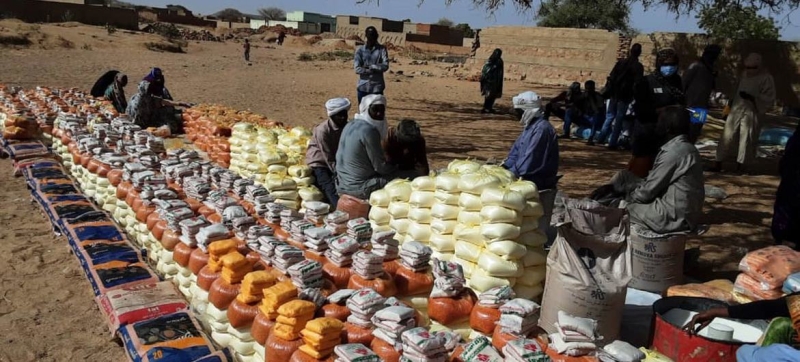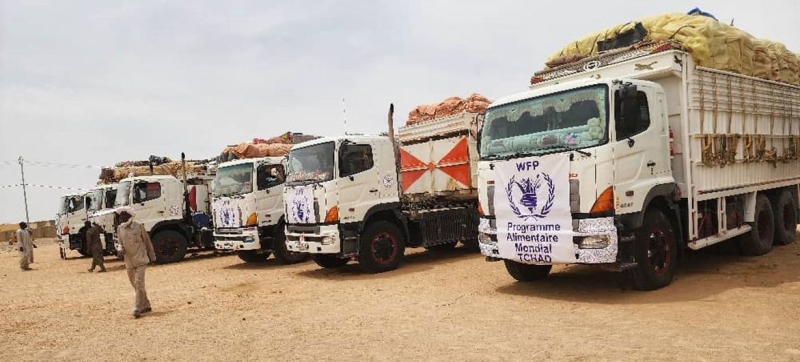
WFP aid distribution in Darfur. The UN was able to deliver food aid to Darfur for the first time in months Humanitarian aid
The UN World Food Program (WFP) has managed to deliver aid to conflict-ridden Darfur for the first time in months. The organization warns that if constant supplies of food to the population of Sudan are not established through all possible corridors, including from neighboring countries, hunger in the country will only worsen.
In late March, two humanitarian convoys crossed the border between Chad and Darfur, delivering food aid to approximately 250,000 people living in North, West and Central Darfur. These were the first cross-border runway convoys to reach Darfur after lengthy negotiations on the opening of these routes. Earlier, in February, Sudanese authorities revoked permits for humanitarian corridors from Chad.
The temporary stoppage of supplies from Chad, as well as ongoing fighting, have made it impossible for humanitarian organizations to operate on the scale needed to provide adequate relief to Sudan’s starving population.
“We need support to deliver aid to war-torn areas along all possible routes. Hunger in Sudan will only worsen as the lean season begins in just a few weeks. I fear that during this lean season we will see unprecedented levels of hunger and malnutrition across Sudan,” said WFP Sudan Representative Eddie Rowe.
Last week, 37 trucks carrying 1,300 tons of supplies arrived in West Darfur from Adre in Chad, and food distribution is currently underway in West and Central Darfur. But the WFP is unclear about when the next humanitarian aid convoy will be able to pass along this route.
Last year, WFP assisted one million people in West and Central Darfur, also delivering food through the Adré crossing in Chad.

Aid trucks arriving in Darfur from Chad.
Another 16 food trucks entered North Darfur through the Tina border crossing in Chad on 23 March. Six trucks reached the area from Port Sudan a few days later, the first aid shipment to cross the front line in six months. However, heavy fighting, insecurity and lengthy inspections by warring parties have led to delays in distributing this assistance to people in need.
“WFP and our partners urgently need security guarantees, so that aid in North Darfur can be distributed to people who are struggling to find even one meal a day. Cross-border operations from Chad to Darfur are critical to supporting communities where children are already dying from malnutrition. All food transport corridors must remain open, especially the corridor from Adre in Chad to Western Darfur, where hunger levels are alarming,” Rowe said.
The war in Sudan has led to unprecedented levels of hunger: acute malnutrition affects 18 million people across the country. In Darfur, 1.7 million people face extreme hunger.
Last month, WFP Executive Director Cindy McCain warned that the war in Sudan risks triggering the world’s worst famine if families in Sudan and those who fled to South Sudan and Chad will not receive food aid. To do this, humanitarian organizations need unhindered access, she emphasized.
